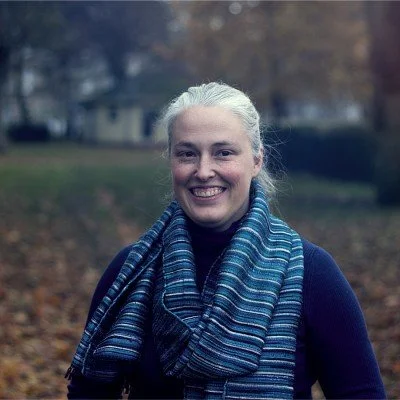CIERP Alumni Perspectives: A Conversation with Anna Schulz
Anna Schulz (F’08, F’16) is currently working at the International Institute for Environment & Development (IIED), as an advisor to the Chair of the Least-Developed Countries Group in the United Nations Framework Convention on Climate Change (UNFCCC).
By Ramsha Hameed
This blog details her life experiences as a professional working in the climate change arena, her current role as an advisor and her academic background, all of which have contributed to her accomplishments as an expert in her field.
After completing her bachelor’s degree in International Relations and Political Science from Wheaton College in Massachusetts, Anna was interested in academia and wanted to become a professor. After finishing her LLM in international comparative water law from the University of Dundee, she completed her thesis in Creating Good Transboundary Water Governance in the Zambezi & Incomati River Basins. Her interest in water and climate policy as a field of specialization grew, and after speaking to Professor William Moomaw, the founding director of CIERP, Anna later went on to pursue the MALD program at Fletcher with the aim of enrolling in the PhD program to study esoteric water treaties. For Anna, the advice and support offered by Professor Moomaw was vital in her PhD consideration and commented that it is not normally offered by many other schools.
During her PhD at Fletcher, Anna decided to gain some practical experience to go along with her academic pursuits. She started working as a water expert at IISD Earth Negotiations Bulletin to provide analysis and coverage of major international environmental negotiations and conferences. During her time at IISD, she contributed to many reports on climate change and sustainable development. It was there she realized that in order to actively participate at IISD, it was important that she expand her portfolio of expertise. Hence, when a position at IISD’s climate team opened up, her expertise in water law and policy and the contextualized courses taken at Fletcher, helped her land the job. This new position allowed her to attend various IPCC and UNFCCC sessions and negotiations, which led her to build up an incredible depth of knowledge in international negotiations, and her passion for this field grew. Alongside working full-time providing summaries and analysis for major international negotiations, Anna was also constructing a database for her PhD thesis, analyzing the history of water law from 630AD - 2016 for over 3000 treaties.
After completing her PhD, Anna started to settle into academia, but her passion to support parties and delegations that did not have a voice in the negotiations process steered her into another direction. Anna started working as a climate diplomacy specialist at the Global Green Growth Institute (GGGI), where she served as a technical advisor to the LDC Group in the transparency negotiations. She moved to South Korea and began to work with the chair of the LDC group and their partner institutions – the IIED and Climate Analytics. After working at GGGI for over two years, Anna moved into another role at the International Institute for Environment and Development (IIED), where she started working as a strategic advisor.
Throughout her academic and professional stints, like any other individual, Anna also faced some hurdles along the way, particularly the decision to expand from a core water specialization into other issue areas. Her difficulty lay in deciding whether she should work on achieving her current dream or forge paths forward for other goals. She advises that having a hyper-narrow focus is not ideal, especially if it is at the expense of expanding one’s skills and areas of expertise. “One must be prepared to step onto different paths when new opportunities present themselves”, she says. She also suggests that if one is no longer being fulfilled by the work they do, it is important to sit down and think about what one is passionate about. Her passion to work on ground and practically engage with international negotiators led her to delay her transition to academia and work that was highly theoretical and technical in nature. She believes that her interest in academia is evergreen, and the more on-ground experience she gains, would help her as a professor of practice. She looks forward to the day where she can share her experience, and knowledge that she has gained at negotiations with her students. Due to her exposure in various settings, Anna’s interest in academia is now linked to action and participating in processes as a strategic advisor.
Anna believes that it is now an excellent time to develop expertise in climate change as much of the work globally will revolve around climate mitigation and adaptation. As the world starts to transition from global policy processes into national level implementation, there will be increasing opportunities to understand the guidance and decisions coming from international process and translate that into national policymaking to support countries to channel resources down to the local level of implementation. This is where students from Fletcher will have a real advantage, due to the contextualized learning from the plethora of wide-ranging courses offered at the school, and the depth of expertise in both policy processes and diplomacy.
Lastly, when asked Anna what she thinks will be the major topics discussed at COP27, she says that it is critical to advance the new global goal on climate finance to maintain trust of the UNFCCC processes and negotiations, especially by developing countries. Developed countries should meet the $100 billion funding and to constructively advance conversations around climate finance. ∎
Ramsha Hameed is an MIB student at The Fletcher School, Tufts University.
This post is part of the Women’s History Month blog series. Read the first post here and the second post here.

